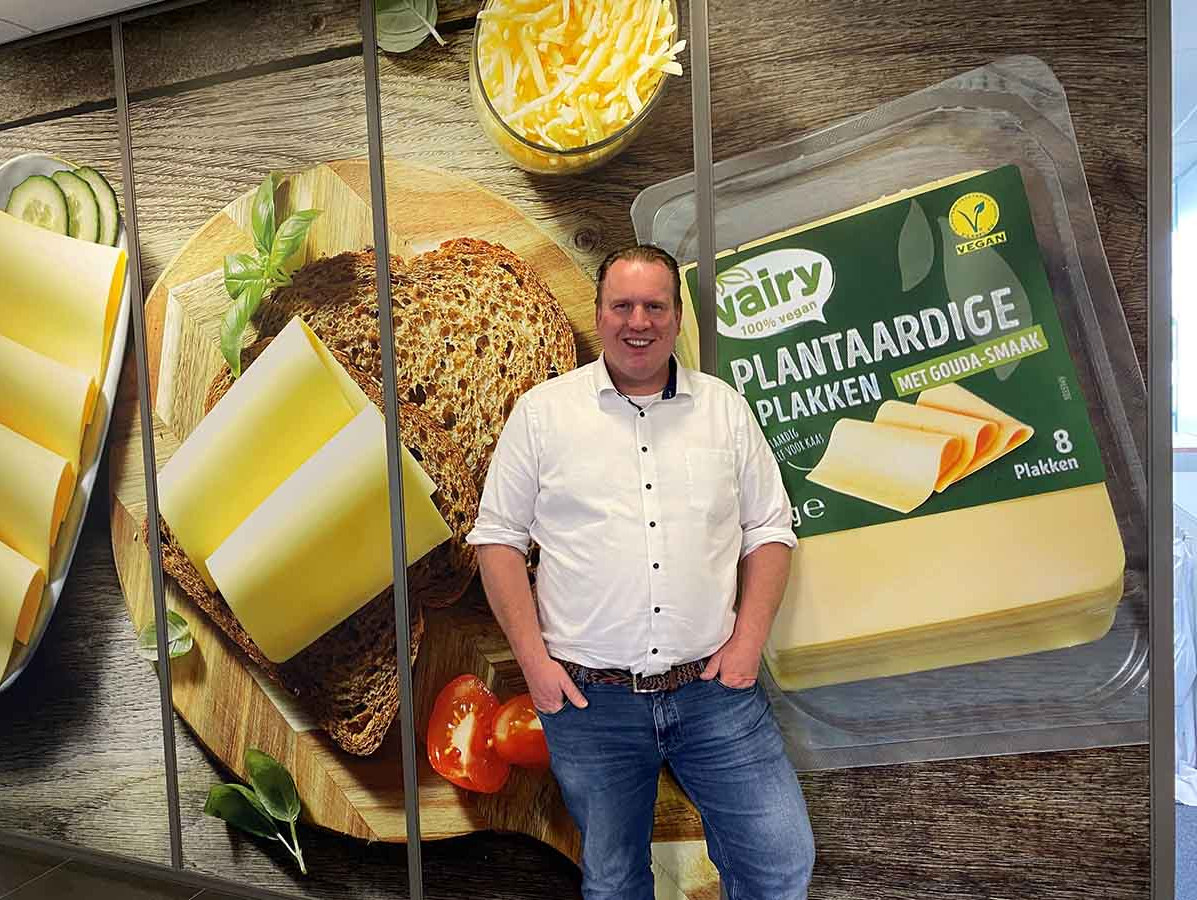
Over the past 35 years, Boermarke has evolved into a significant dairy processor in the dessert industry. Therefore, it came somewhat as a surprise when the company recently decided to gradually phase out its dairy branch and fully focus on plant-based products. Director Reynier Varvik explains why this was a logical move for Boermarke.
"Over the years, we have significantly expanded the production of our vegetarian yogurts. We have been catering to customer demands for years, and in 2015, a major retailer approached us with a request for a coconut yogurt. Initially, we thought of a yogurt with coconut flavor, but it turned out he had encountered plant-based yogurt in England. In six weeks, we developed a recipe, presented the product to the customer, and immediately received approval. I have never sold so effortlessly before. Our first plant-based product was born."
"Since then, the demand for such products has grown substantially. Because we were early adopters, our customers know where to find us. Two years ago, we even added an entire line of plant-based cheeses. Managing the production of all these different products brings a lot of complexity. As production became increasingly intensive, we made the decision to phase out our animal-based products branch."
"It is primarily due to the production of certain liquid dairy products. For instance, we start on a Sunday night with plant-based products and continue until Wednesday. Then we switch to animal-based products. This has a significant drawback. If we receive an additional order for ten pallets from a supermarket chain for the next day, we are trapped. We want to eliminate that problem."
"For short-term margins, entering this market is not advisable. Plant-based products require substantial investments. Every penny is immediately reinvested in the company, which is necessary to stay ahead of the competition, as there is ongoing innovation in this particular market. Additionally, we aim to produce large volumes. In the yogurt market in Germany, there are a few players we no longer want to compete with. In the plant-based sector, however, we are one of the larger players. With this new step, we want to utilize that position more."
"After eight years, almost half of our volume is now plant-based. This percentage is expected to increase in the short term. In fact, soon we will be producing for several major parties, as already more or less agreed. Furthermore, we plan to conquer Europe. Our goal is to manufacture a product for every supermarket in Europe within three years. Currently, we are mainly active in the Netherlands and Germany but are experiencing significant growth in Spain, Poland, England, and France."
"We are not worried at all! Meat substitutes are sometimes more expensive than meat, and in these times, consumers are mindful of their budgets. We feel that some flexitarians have returned to meat due to the price. It's different in our markets. Just walk into a store and compare the prices of private-label cheese and plant-based cheese. You'll see that cheese is much more expensive than plant-based alternatives. This is not surprising; it takes ten liters of milk to produce one kilogram of cheese. If milk prices rise, the cost price of a kilogram of cheese can easily reach €5."
"Of course, it's challenging! We wondered about the market's direction and in which segment we are currently experiencing the highest growth, which was our plant-based product range. While there may be numerous brands, there are few entities with a factory capable of producing 65,000 cups per hour, not to mention our production of ice cream and cheese. We believe that this move is the best for the future."
This article was previously published on Foodbusiness.nl
Source: Foodbusiness.nl